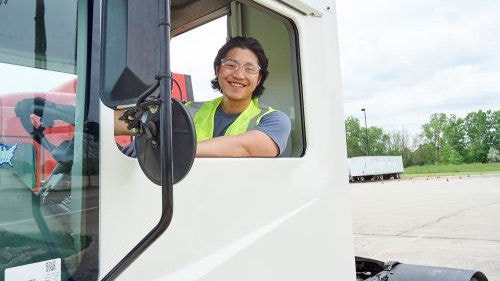Rethinking Driver Qualification in Today’s Industry
October 24, 2025

In the world of commercial transportation, safety and reliability are non-negotiable. For years, companies have relied on a Commercial Driver’s License (CDL) as the gold standard for verifying a driver’s qualifications. But is a CDL alone enough to ensure a driver is truly road-ready? Are we getting the full picture of the driver’s ability? Increasingly, the answer is no.
Limitations of the CDL as verification
While a CDL is a legal requirement, it doesn’t always reflect a driver’s current skill level or their ability to handle the specific demands of your fleet. Training and testing standards vary, and a driver who passed their test years ago may not have maintained the same level of proficiency. Accepting a CDL as the source of truth can leave companies vulnerable to safety risks, compliance issues, and costly incidents.
What does a road test demonstrate?
Administering a practical road test allows employers to directly observe a driver’s capabilities in real-world conditions. It’s an opportunity to assess how well they handle your specific equipment, navigate your routes, and adhere to your company’s safety protocols. A driver with many years of driving experience may not be familiar with the specific equipment you operate. Road testing ensures that drivers meet your standards and uncovers areas to provide training during the onboarding process. Accepting a CDL only demonstrates the driver possesses the basic skills to operate the vehicle.
Why not do it yourself?
Who should administer these tests? While some companies choose to handle road testing in-house, this approach can be labor-intensive and prone to inconsistency. Internal testers may face pressure to “pass” candidates quickly, to meet fleet needs. The requirements for a test administrator are vague and the tester may lack the training to conduct thorough evaluations. In the case of litigation, the qualifications of the tester will be scrutinized.
Using a third-party administrator (TPA) to manage road testing brings a host of advantages. First, it introduces objectivity. TPAs are independent, reducing the risk of internal bias or liability. They follow standardized procedures, ensuring every driver is evaluated fairly and consistently. Drivers are often tense at the beginning of a test and relax as the test proceeds. TPAs are trained to watch for habits drivers possess.
Second, TPAs free up your internal teams to focus on core operations. Instead of pulling managers or trainers away from their primary duties, you can rely on experienced professionals who specialize in driver assessment. This not only improves efficiency but also enhances the quality of your hiring process.
Finally, TPAs often bring configurable solutions. Whether you’re onboarding one driver or one hundred, they can adapt to your needs without compromising quality or compliance.
In today’s competitive and safety-conscious environment, relying solely on a CDL is no longer enough. Road testing provides a more accurate picture of a driver’s readiness. And by partnering with a third-party administrator, companies can ensure those tests are conducted with the highest standards of fairness, consistency, and professionalism.
Don’t just trust the license—test the driver.
Learn how J. J. Keller’s Driver Road Testing Program can help you raise the bar on driver qualification.